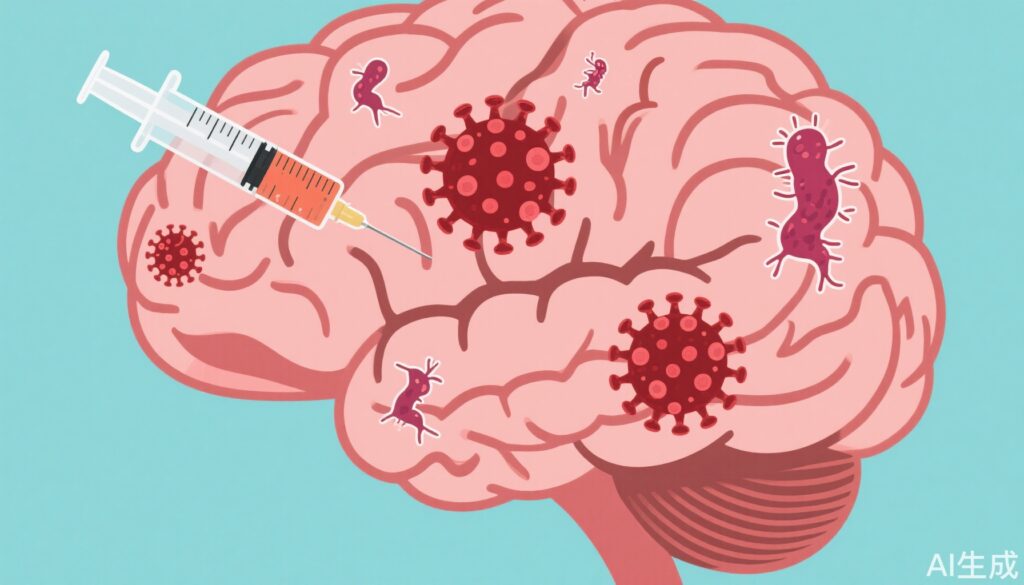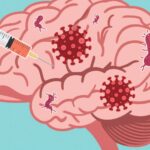Introduction: A Surprising Link Between Herpes Viruses and Dementia
For decades, the idea that common viruses could play a role in neurodegenerative diseases like Alzheimer’s seemed fringe. But mounting evidence now points to herpes simplex virus type 1 (HSV-1)—the culprit behind cold sores—and varicella zoster virus (VZV), which causes chickenpox and shingles, as under-recognized drivers of dementia. Should we rethink how we prevent and treat these everyday infections?
Consider the case of Linda, a retired schoolteacher in her seventies. After a bout of shingles, her family noticed her memory wasn’t what it used to be. Was it just aging, or could her recent viral infection have triggered something deeper? Linda’s story is increasingly relevant as scientists unravel the interplay between viral infections and the aging brain.
What the Data Tell Us: Herpes Viruses and Dementia Risk
Multiple large-scale studies and laboratory experiments have revealed a consistent association: individuals with a history of HSV-1 or VZV infection face a notably higher risk of developing dementia, including Alzheimer’s disease (AD). The evidence comes from a broad spectrum of research:
- Brain Autopsy and Genetic Studies: Researchers led by Ruth Itzhaki, PhD, at Oxford, first identified HSV-1 DNA in the brains of Alzheimer’s patients—especially those carrying the APOE ε4 gene, a known AD risk factor. This suggests a gene-virus synergy, where latent infection may ‘flip the switch’ on genetic vulnerability.
- Cellular Experiments: HSV-1 infection in cultured human neurons induces the accumulation of amyloid-beta and phosphorylated tau—the main components of Alzheimer’s plaques and tangles. Antiviral treatments in these models can significantly reduce pathological changes and cell death.
- Epidemiological Evidence: A 2025 meta-analysis covering over 14 million dementia-free individuals found that herpes zoster vaccination reduced dementia risk by 29% (HR = 0.71, 95% CI: 0.66–0.76). Other cohort studies from Taiwan, the UK, and Australia corroborate these findings, with antiviral medications and VZV vaccination both linked to significantly lower rates of dementia in older adults.
Notably, patients co-infected with HSV-1 and VZV appear to face even higher risks, suggesting compounded effects.
Biological Mechanisms: How Do Viruses Affect the Brain?
How might these common viruses fuel neurodegeneration? Several plausible mechanisms have emerged:
- Latent Infection and Reactivation: Both HSV-1 and VZV can remain dormant in the nervous system, reactivating in response to stress, immune decline, or injury. Each flare-up may inflict cumulative neuronal damage.
- Chronic Inflammation: Viral reactivation can trigger persistent inflammation in the brain, a critical driver of neurodegenerative changes.
- Amyloid and Tau Pathology: HSV-1 infection can directly promote the formation of amyloid plaques and tau tangles—classic hallmarks of Alzheimer’s disease.
Recent studies show that even mild brain injuries or repeated infections can reactivate dormant HSV-1, triggering the accumulation of toxic proteins and accelerating cognitive decline.
Not All Herpes Viruses Are Equal
While HSV-1 and VZV have strong links to dementia, not all herpes viruses share this effect. Cytomegalovirus, for example, has not shown a consistent association. Genital herpes (HSV-2) is less conclusively linked, although some studies suggest possible risk. The evidence is strongest for HSV-1 and VZV.
Prevention and Treatment: Antivirals and Vaccines
Could treating or preventing herpes infections protect the brain? The latest research offers hope:
- Antiviral Medications: In a Taiwanese cohort, symptomatic HSV-1 infection tripled dementia risk, but antiherpetic medication reduced this by 90%. Similar protective effects have been observed in U.S. studies, though one major clinical trial (VALAD) found no benefit for antivirals in patients already diagnosed with early Alzheimer’s or mild cognitive impairment.
- Shingles (VZV) Vaccination: A landmark UK study of over 280,000 adults found that shingles vaccination lowered dementia risk by about 20% over seven years. An Australian quasi-experimental study confirmed a causal effect: eligibility for free vaccination reduced new dementia diagnoses by 1.8 percentage points over 7.4 years (JAMA, 2025).
A summary of key findings:
| Intervention | Population | Dementia Risk Reduction |
|---|---|---|
| Antiherpetic medication | Taiwan cohort (HSV-1+) | ~90% |
| Shingles vaccination | UK adults (VZV+) | ~20% |
| Shingles vaccination | Australia (quasi-experiment) | 1.8 percentage points over 7.4 years |
Debates, Limitations, and Misconceptions
Despite compelling associations, not all studies agree. One U.S. veterans study found no link between HSV infection and dementia, though antiviral use still appeared protective. Moreover, antiviral drugs have not yet proven effective for treating established Alzheimer’s disease in clinical trials. Thus, causality is not fully established, and more research is needed to clarify the timing, mechanisms, and populations who benefit most.
Common misconceptions include:
- “Everyone with cold sores will get dementia.” — False. While risk is increased, most carriers never develop dementia.
- “Only recent infections matter.” — False. Latent, lifelong infection and reactivation appear most relevant.
- “Vaccines and antivirals are a cure for Alzheimer’s.” — False. Prevention may help, but established disease is much harder to reverse.
Clinical Implications and Expert Recommendations
Clinicians increasingly face questions from patients: “Doc, I heard that cold sores or shingles might cause Alzheimer’s—should I be worried?” The answer requires balance. According to Dr. Shaheen Lakhan, Miami-based neurologist:
“We can’t say herpes viruses cause Alzheimer’s with absolute certainty, but there’s enough evidence to suggest they’re contributing factors—and that taking steps to mitigate these infections is wise.”
Practical steps for clinicians and the public:
- Discuss the potential benefits of shingles (VZV) vaccination with patients aged 50 and over, especially those with other dementia risk factors.
- Consider prompt antiviral treatment for symptomatic herpes infections, particularly in older adults.
- Advise healthy lifestyle practices—diet, exercise, and cognitive engagement—known to support brain health.
- Monitor emerging research for updates on new antivirals, vaccines, or immunotherapies targeting herpes-related neurodegeneration.
Looking Forward: The Future of Dementia Prevention
The herpes-dementia connection has gone from fringe hypothesis to a focal point of neurodegenerative research. Studies are underway to develop new antivirals and vaccines aimed at preventing viral reactivation in the brain. There is also growing interest in personalized medicine approaches—identifying individuals with genetic and viral risk profiles who might benefit most from targeted prevention.
As Dr. Ruth Itzhaki puts it, “The weight of the evidence supports a causal role. Preventing or treating herpes virus reactivation could be a game-changer for dementia prevention.”
Conclusion
While much remains to be learned, the case for herpes virus prevention as a strategy against dementia is stronger than ever. Vaccination against shingles and prompt antiviral treatment for herpes infections may offer real hope in reducing the global burden of Alzheimer’s and related dementias. As always, the best strategy is a blend of science, vigilance, and proactive health care.
References
- James LM, Stratigopoulos G, Georgopoulos AP. Human herpes viruses are associated with steeper age-dependent increases of serum biomarkers for dementia in cognitively unimpaired women. Sci Rep. 2025 Jul 15;15(1):25475. doi: 10.1038/s41598-025-10102-1.
- Roe K. Herpesvirus initiation of dementias and autoimmune diseases. J Neurovirol. 2025 Jul 7. doi: 10.1007/s13365-025-01265-8.
- Yin Y, Deng J, Liu J. The association between herpes zoster vaccination and the decreased risk of dementia: A systematic review and meta-analysis of cohort studies. J Alzheimers Dis. 2025 Jun 23:13872877251351593. doi: 10.1177/13872877251351593.
- Pomirchy M, Bommer C, Pradella F, Michalik F, Peters R, Geldsetzer P. Herpes Zoster Vaccination and Dementia Occurrence. JAMA. 2025 Jun 17;333(23):2083-2092. doi: 10.1001/jama.2025.5013.



